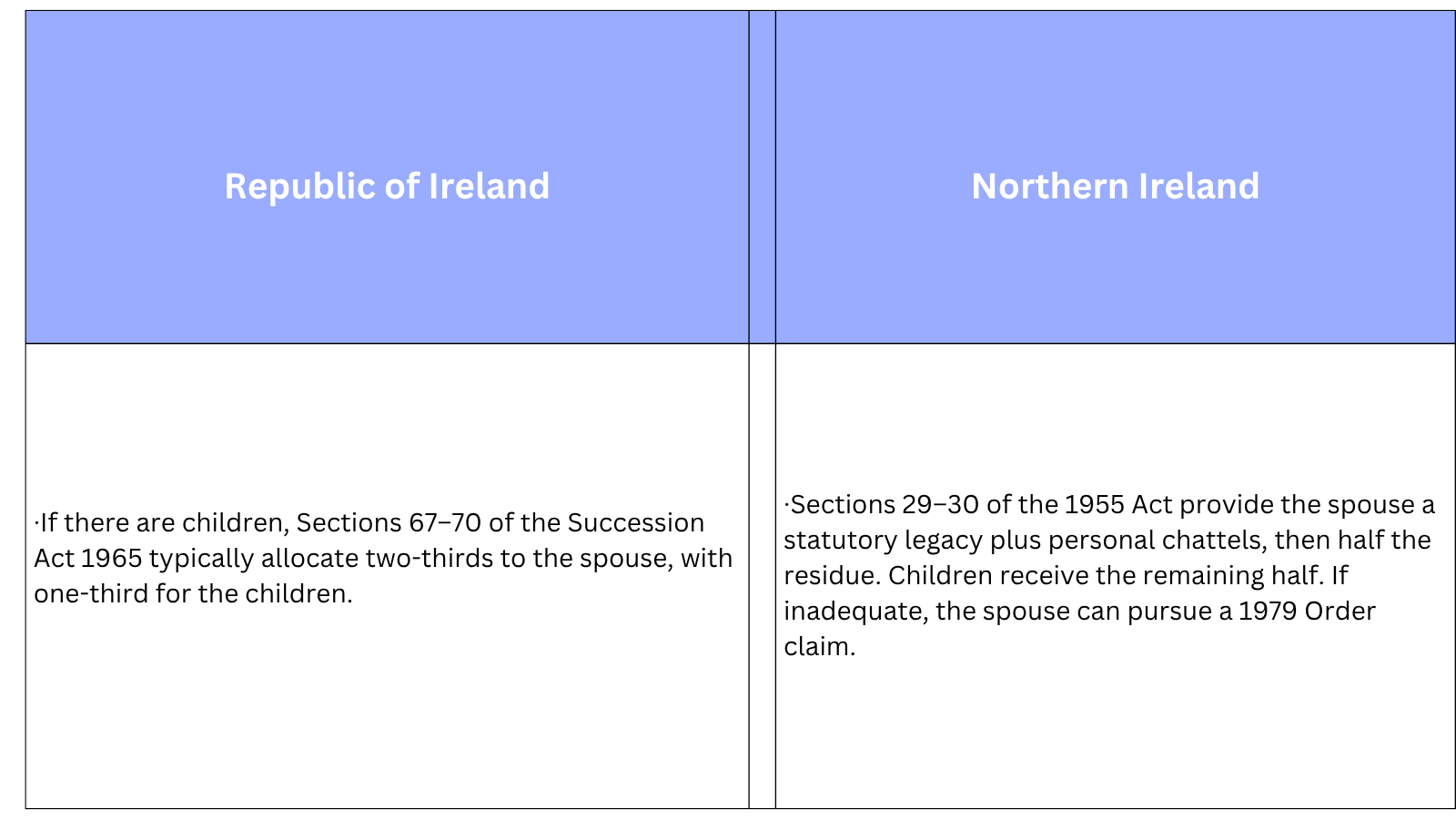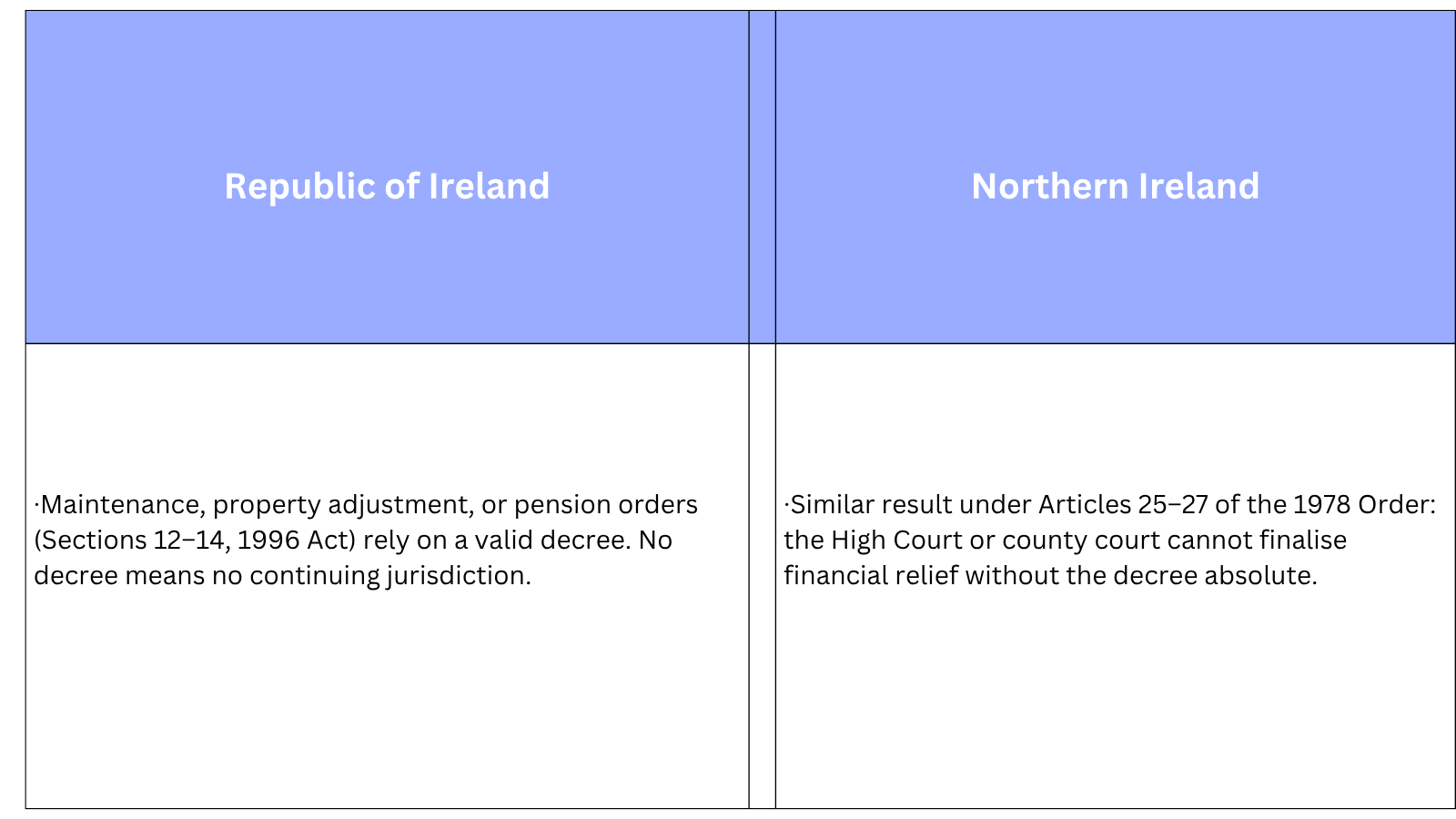Death on Divorce: Comparison between the Republic of Ireland and Northern Ireland
As has been noted in our previous article - where a spouse dies before a divorce can be finalised the proceedings instituting the process are terminated. However, although the divorce proceedings are terminated, the surviving spouse may still be entitled to a share of the deceased party’s estate.
This is where inheritance law comes into play. Despite some similarities between the two legal jurisdictions in Ireland, there are nonetheless some practical differences in relation to the administration of the estate and we shall now look at these in turn:
1. No posthumous divorce and no ancillary relief.
2. Inheritance laws and key statutes
3. Practical examples
3.1 Dying with a Will Disinheriting the Surviving Spouse
3.2 Dying Intestate
4. Effect on Ancillary Relief
Because divorce cannot be completed post-death, all divorce-based financial applications vanish:
5. Waivers, Separation Agreements, and Judicial Separation
6. Key Differences and Final Observations
1. No Posthumous Divorce: Both jurisdictions disallow finalising a divorce after death, causing the action to abate.
2. Inheritance Entitlements:
3. Estate Litigation:
4. Complete the Divorce: If spouses wish to ensure certain inheritance outcomes, finalising the divorce (decree absolute in NI, court decree in ROI) or obtaining a valid waiver is crucial. Otherwise, the surviving spouse will likely still inherit.
In both NI and ROI, specialist legal advice is essential, given the interplay of family law and probate law. The unexpected death of a spouse during divorce can upend intentions on both sides, so understanding these rules—and the differences in each jurisdiction—can help parties better plan their affairs.








